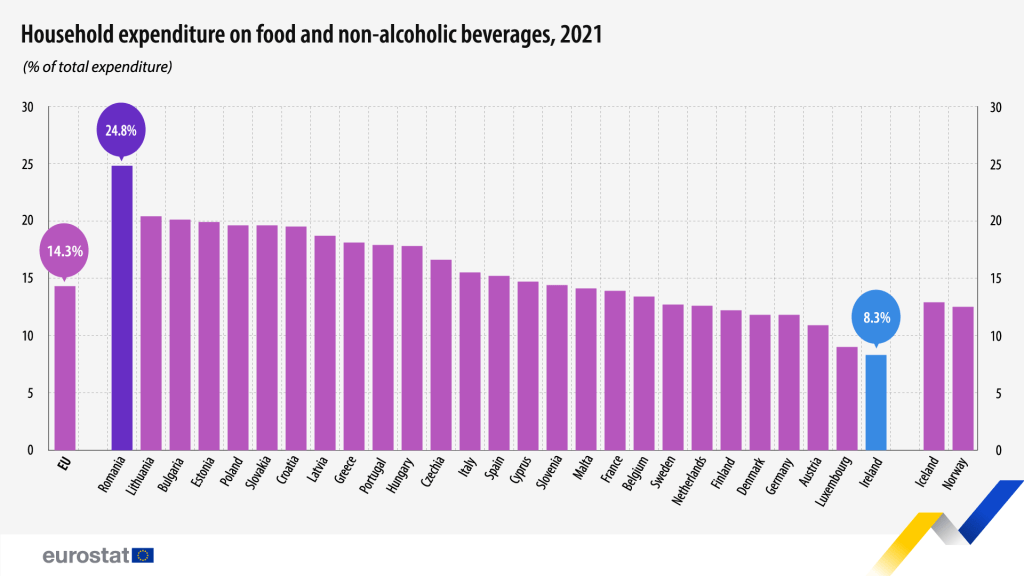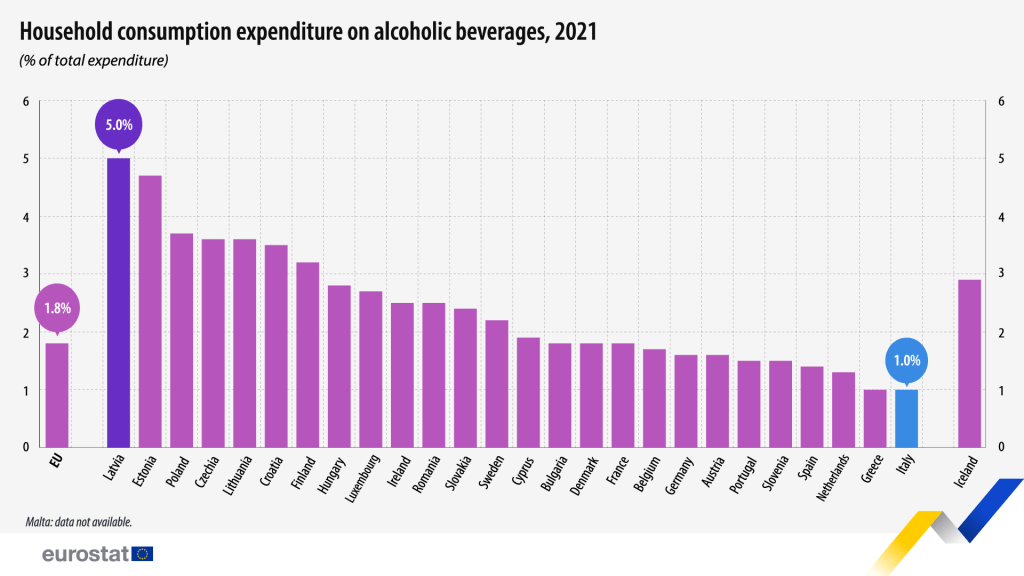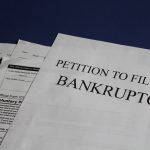In 2021, households in the EU spent over €1 035bn (equivalent to 7.1% of the total EU GDP) on ‘Food and non-alcoholic beverages’. This represents a share of 14.3% of total household expenditure. Compared with 2020 (14.8% share), this represents a decrease of 0.5 percentage points (pp).
The highest shares for ‘Food and non-alcoholic beverages’ expenditure in 2021 were registered in Romania (24.8%), Lithuania (20.4%), Bulgaria (20.1%), Estonia (19.9%), Poland and Slovakia (both 19.6%).
In contrast, the lowest shares were in Ireland (8.3%), Luxembourg (9.0%), Austria (10.9%), Denmark and Germany (both 11.8%).
Compared with 2020, the share of total household expenditure on food decreased in all EU countries, except for Poland and Slovakia, where it increased (both +0.2 pp). The highest decreases were in Greece (-1.7 pp), Lithuania (-1.4 pp) and Croatia, Estonia and Slovenia (all -1.3 pp).
Almost 1% of the EU GDP is spent on alcoholic beverages
In 2021, households in the EU spent €128 billion (equivalent to 0.9% of the EU GDP) on ‘alcoholic beverages’. This represents 1.8% of their total consumption expenditure, the same percentage share as in 2020.
Among EU members, the highest shares of total consumption expenditure on alcoholic beverages in 2021 were registered in Latvia (5.0%), Estonia (4.7%), Poland (3.7%), Lithuania and Czechia (both 3.6%). On the contrary, the lowest shares were in Greece and Italy (both 1.0%), the Netherlands (1.3%) and Spain (1.4%).
In 2021, compared with the previous year, the share of total household expenditure on alcohol remained unchanged in 10 EU countries (Belgium, Denmark, Germany, Greece Luxembourg, the Netherlands, Austria, Poland, Romania, Slovakia) and it increased only in Croatia (+0.6 pp). Among the remaining EU members, the largest decreases were recorded in Ireland (-0.5 pp), Latvia and Lithuania (both -0.4 pp), Spain and Estonia (both -0.3 pp).
Source: Eurostat








Leave a Reply